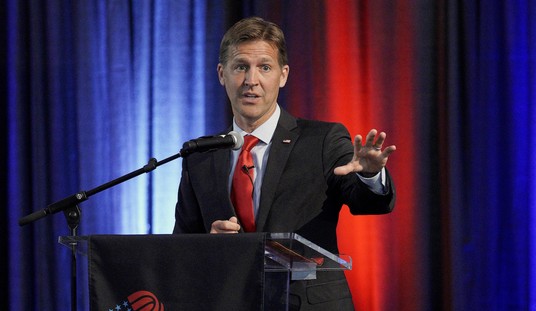While sitting through the frequently mind numbing congressional hearings on Ebola today, there was one frequently mentioned theme which left me feeling frustrated. It dealt with the subject of a possible travel ban to the United States from the affected areas in Africa, a subject which has been in the news quite a bit lately. For some reason this question seems to have quickly boiled down to a partisan stalemate between the parties in the most stubborn of ways, and this time it’s an issue of critical substance rather than some ideological hot potato. Multiple Republicans, including the Speaker of the House, have come forward and called for an immediate ban, including some very detailed proposals such as the one from Marco Rubio.
“The State Department should institute a temporary ban on new visas to non-U.S. nationals seeking to travel to the United States from Liberia, Sierra Leone and Guinea,” Rubio wrote in an op-ed at CNN.com. “Since March 1, 2014, over 6,000 visas have been issued to nationals of these countries. Foreign health workers coming to the United States to be trained should be exempted, provided they pass screening efforts. However, until we have a better handle on the problem, we need to prevent mass travel from the countries most affected. We should also ensure that Customs and Border Patrol agents at airports beyond the current transit points have the equipment and training to deal with potential cases. And additional travel restrictions should not be ruled out.”
I also heard Dr. Friedan of the CDC repeat what is apparently the company line, whether it’s coming from the White House originally, the NIH or Health and Human Services. He continued to push back on such suggestions, saying a travel ban would push people intent on escaping outbreak zones to travel in ways that are almost impossible to track. In effect, what Dr. Friedan is arguing is that if we continue to allow potential carriers direct access into the United States, we’ll have a higher percentage chance of identifying them than if they skip across a few borders first and fly in here from Europe or China. This position was quoted (somehow in the form of a question) by Henry Waxman (D-California) essentially verbatim. The message is being repeated nearly word for word by the President’s willing surrogates in the liberal blogs.
Personally, that sounds to me like saying that we should leave the window that faces the hillside where the sniper is firing from wide open because we have a pretty good idea where he is and we’ll do a better job of dodging the bullets. But even that isn’t the source of the irritation I was feeling while listening to this testimony.
Putting myself in the President’s place, it seems like there are two very clear options to be considered, and this doesn’t really need to be that complicated of a decision. You either refuse to institute the suggested travel ban or you put it in place. And if you do put it in place, the concerns raised by Dr. Friedan should be addressed in as much as is possible by taking additional steps, including working with the airports all over the world to track the points of origins of all passengers as thoroughly as possible. For those citizens who must travel here, a three week quarantine should be mandatory before they fly. And we shouldn’t be sending our soldiers.
Once you’ve simplified the decision tree in this fashion, President Obama need only look at the consequences of each of those two courses of action should he turn out to be wrong. If he institutes the ban and it turns out – after a sufficient time to gather facts and examine the results – to have been unnecessary or less effective than desired, he will have inconvenienced some number of travelers. If he does not institute the ban and that proves to be the wrong move in the form of screeners missing some signs, people lying about their condition, or simple bad luck, he may have dozens or hundreds of hospital beds filling up with people who have contracted a disease with a 70% mortality rate.
When you look at it that way, the choice seems fairly obvious. If you go with the ban and you are wrong, you come forward some weeks or months later and issue an apology to those inconvenienced, saying you just did what you thought best to protect the nation. If having to say you were wrong just one time about a matter this serious is the worst thing to happen to you, you’ve had a pretty good day. The wrong call in the other direction will see you apologizing to the families of all the people who occupy the aforementioned beds.
Is it really that tough of a call?








Join the conversation as a VIP Member